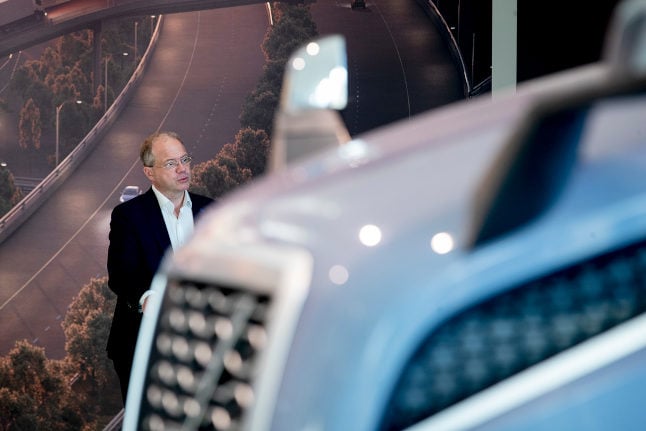Olofsson, who professed that it was “fun to be minister for cars”, was centre of attention when Volvo unveiled its 3.2 litre ethanol concept car.
“It’s really cool,” was Olofsson’s verdict on the car. Olofsson has long been one of the governing Alliance’s strongest advocates of green motoring, and herself drives an ethanol powered car.
The real business of Olofsson’s trip over the pond was to discuss how Sweden’s car-making industry could stay competitive in an age when uncertain oil supplies and climate change mean that cars that use less fuel and have lower emissions are in favour.
Olofsson is expected to meet representatives from Ford, which owns Volvo Cars, and General Motors, which owns Saab. Among the executives she will be meeting are Ford Europe chairman Lewis Booth and GM’s head of purchasing Bo Andersson, a Swede.
Olofsson said the aim of her meetings is to find out what the Swedish government needs to do to create a good climate for the car industry.
“The car industry represents 15 percent of Swedish exports and creates large numbers of jobs.”
Among the topics Olofsson is expected to raise with Ford are Volvo’s decision to stop producing gas-powered cars.
The minister said that the fact that so few gas cars had been sold in Sweden was related to the scarcity of gas fuelling stations. But Olofsson added that she expected the number of gas pumps to rise, just as ethanol is now more widely available.
Olofsson also said she understood the need for green cars to be attractive, adding that there was a need for women car designers.
“The consumers of the future will not dress themselves in sackcloth and ashes. They’ll want cool, functional cars with modern design, but they will also want to be environmentally friendly.”


 Please whitelist us to continue reading.
Please whitelist us to continue reading.